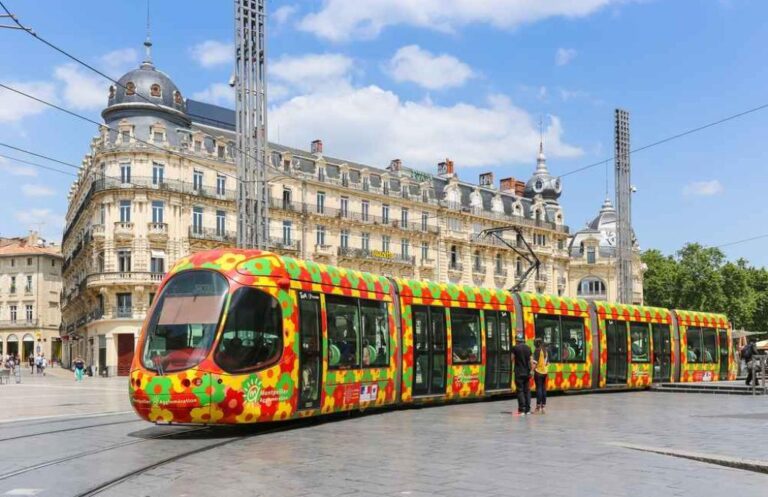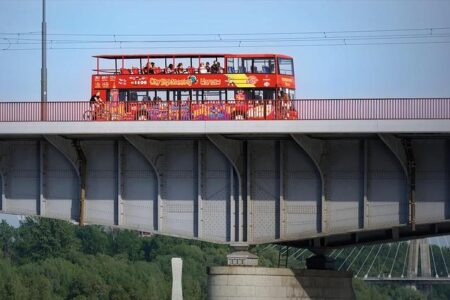Exploring Free Public Transportation: A Case Study from Montpellier
In a bold move toward sustainable urban mobility, the city of Montpellier, France, has embraced an innovative approach to public transportation: offering free rides to all residents and visitors. This initiative not only aims to reduce traffic congestion and lower carbon emissions but also seeks to make public transit more accessible and appealing. As cities around the globe grapple with the challenges of affordable transportation and environmental concerns, Montpellier’s program serves as both a beacon and a case study for other municipalities. In this article, we delve into the impact of free public transportation in Montpellier, examining its effectiveness, public reception, and potential implications for urban planning in the United States and beyond.
Exploring the Benefits of Free Public Transit in Montpellier
Montpellier’s decision to offer free public transit has transformed the city’s transportation landscape and brought numerous benefits to its residents and visitors. By eliminating fare costs, the municipality encourages more people to utilize public transit, significantly reducing traffic congestion and lowering emissions. This shift not only promotes a cleaner environment but also enhances the overall quality of life in the urban area. With more residents opting for buses and trams, the streets have become less congested, leading to better air quality and a more enjoyable urban experience for everyone.
Furthermore, the initiative has made public transportation more accessible, particularly for vulnerable populations such as low-income families and students. With the removal of fare barriers, individuals who previously struggled to afford transportation now have improved mobility. This increased accessibility fosters a sense of community and economic inclusion, empowering people to reach educational and employment opportunities that were once out of reach. Overall, MontpellierŌĆÖs pioneering approach serves as an exemplary model for other cities contemplating similar free transit programs.
Assessing the Impact on Environmental Sustainability and Urban Mobility
Montpellier’s free public transportation initiative is reshaping the relationship between residents and their urban environment. By eliminating fare costs, the city aims to encourage more people to opt for public transit over personal vehicles, significantly lowering carbon emissions. This approach promotes environmental sustainability in various ways, including:
- Reduction in traffic congestion
- Decrease in air and noise pollution
- Encouragement of walking and cycling as sustainable modes of transport
As a result, daily commuters are experiencing improved accessibility and reduced travel times, which contributes to a more dynamic urban ecosystem. Urban planners are observing noteworthy metrics that indicate a transformation in mobility patterns. For instance, a recent survey highlighted changing commuting habits, with a substantial increase in public transit usage compared to pre-initiative figures. The following table illustrates this remarkable shift:
| Year | Public Transport Usage | Private Vehicle Usage |
|---|---|---|
| 2019 | 25% | 75% |
| 2021 | 50% | 50% |
| 2023 | 70% | 30% |
Challenges and Opportunities for Expanding Free Transport Initiatives
Expanding free public transportation initiatives presents a unique set of challenges that municipalities must navigate. The financial sustainability of such programs remains a common concern; cities need to find a way to support operations without overburdening taxpayers. Additionally, the political landscape can complicate efforts, especially in regions where public transport has historically been underfunded or undervalued. Implementing these initiatives requires a robust public education campaign to raise awareness and support among residents, highlighting the benefits of reduced dependence on personal vehicles and lower emissions.
However, the benefits of adopting free transport are equally compelling, providing substantial opportunities for urban development. By alleviating transportation costs, cities can enhance accessibility, particularly for low-income populations, thereby creating more equitable urban environments. This shift could also lead to increased ridership, which supplies a beneficial cycle of increased revenue and better services. Moreover, local businesses stand to gain from higher foot traffic as patrons can easily access shops and services without the barrier of travel costs. In summary, with proper planning and community engagement, cities like Montpellier can turn the hurdles of free public transport into stepping stones for a sustainable and inclusive future.
Recommendations for U.S. Cities Considering Similar Programs
For U.S. cities contemplating the implementation of free public transportation, several key considerations can help ensure the success of such programs. First and foremost, community engagement is crucial. Local governments should involve residents in the planning phase, conducting surveys and town meetings to understand their transportation needs. Data collection on usage patterns and demographics can assist in designing an effective network that serves various populations. Additionally, cities should examine existing models, such as Montpellier’s system, to learn from both successes and challenges. Understanding the financial implications and potential funding sources is paramount, as cities can identify grants or partnerships that might alleviate costs.
Furthermore, cities must prioritize sustainable integration into their urban infrastructure. This involves ensuring that free transport options are not only accessible but also reliable and efficient. Infrastructure investments in dedicated bus lanes or improved transit stops can significantly enhance the user experience. Furthermore, cities should promote multi-modal transport options that connect free public transit with biking, walking, or ride-sharing services. To facilitate transition, local authorities can establish a phased approach, gradually increasing the availability of free services while developing a robust communication strategy to keep the public informed and engaged.
In Summary
As cities across the globe grapple with the challenges of urban mobility and climate change, Montpellier has emerged as a noteworthy example of innovation in public transportation. By offering free transit options to its residents, the French city not only prioritizes accessibility but also paves the way for sustainable practices that can serve as a model for urban planning in other regions. This initiative highlights the benefits of shifting away from car dependency, illustrating how such policies can lead to reduced congestion and lower emissions. As America continues to seek solutions to its own transportation dilemmas, Montpellier’s experience stands as a potent reminder of the transformative potential of embracing free public transit. As the push for equitable and sustainable urban environments evolves, the lessons learned from this vibrant city could very well inform the future of public transportation across the nation.




